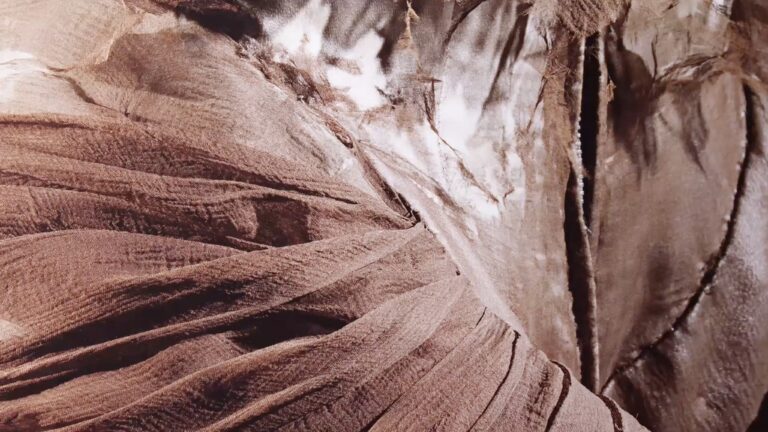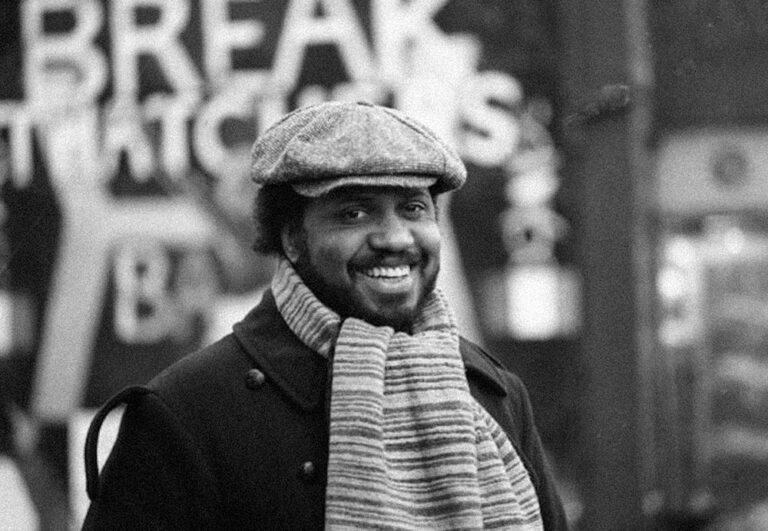aemi Newsletter July 2023

Still from The Cesspool of Rapture, 2017, by Joseph Noonan-Ganley. Screening as part of 'aemi & GAZE present: Lucid Notions' on Sunday, August 6th at 1pm.
Hello there and hope this finds you all well.
We wanted to use this summer edition of the aemi newsletter to reflect on some broader questions relating to cinema culture, particularly in view of the fact that the current moment feels as marked by frenzied excitement as acute disquiet about the possible directions in which the medium in its mainstream form could be headed…
In our InFocus section at the bottom of this newsletter we highlight an excellent article by Ruarí McCann recently published by Screen Slate about The Black and the Green, a 1983 documentary directed by St. Clair Bourne which, as Ruarí notes, was motivated by “a desire to uncover parallels between Black and Irish anti-colonialist struggles”. A clear example of just how enmeshed cinema can get in political activism, Ruarí’s text proves an interesting counterpoint to Erika Balsom’s interview with Paul Schrader in which they discuss processes of canon building and more specifically Schrader’s discomfort with Chantal Akerman’s Jeanne Dielman finding its way to the top of Sight and Sound’s Greatest Films Poll, a position it reached spuriously, Schrader hypothesises, not on its own merit but because of the MeToo movement – a myopic point of view that also bizarrely suggests that our political conscience has no role to play in our experience of cinema. Akerman’s work was often labelled as ‘experimental’ but directors as diverse as Michael Haneke, Kelly Reichardt and Sofia Coppola have all cited her as a major influence – a clear signal that the reach and effects of artist cinema are lasting and often difficult to predict.
One of the questions these articles raise is an ongoing consideration of a cinema by and for whom and by extension an artist cinema by and for whom. To whom does or should cinema belong, who gets to access it, and who gets to create it? There are other urgent questions that require attention too; what does a non ableist or queer cinema look like or behave? These concerns underpin much of our work at aemi and in particular when we are putting programmes together. These questions informed our 2023 touring programme and fed directly into our selection process for ‘Lucid Notions‘, the programme we are thrilled to be presenting as part of GAZE on August 6th and which includes The Cesspool of Rapture, a stunning film by Joseph Noonan-Ganley (pictured above and screening in Ireland for the first time) featuring the voice of English-American couturier Charles James (1906-1978) who offers radical theories on sexuality and fashion in between camera work that journeys through zippers, stains, rips, abrasions, openings, and closings in a series of his dresses. This film, alongside all of the work and artists highlighted elsewhere in this newsletter, continues to push the boundaries of what cinema, or film, can be and do. It offers us a glimpse of a continuously expanding understanding of the form.
We would love to see you at any of our upcoming screenings to continue this conversation and more. Details of our ‘Súitú’ screening in Boyle tonight below as well as our install at The Model (running until September 6th) and our screening with GAZE.
Til soon,
Alice, Daniel, Áine
‘Súitú’ at The Model in Sligo
‘Súitú’ is now open as an in-person installation at The Model in Sligo, running from July 15th to September 6th. For more information about ‘Súitú at The Model, please visit here.
‘Súitú’ at Black Hole Studio in Roscommon
‘Súitú’ will be presented as a once-off screening event by David J. Pierce at Black Hole Studio in Boyle, Co. Roscommon tonight, July 26th. For more information and to buy tickets, please visit here.
aemi follow this then with another curated programme for GAZE coming up as part of the festival in August:
aemi & GAZE present: LUCID NOTIONS
Marking the fourth consecutive year of AEMI and GAZE working together to present a programme of moving image work by artists and experimental filmmakers as part of the festival, this packed line-up moves from the earthly to the celestial to assert political dissent, express longing and physical desire, evoke the stranger facets of human intimacy and celebrate the healing strength of joy, community and creativity. To learn more about the programme and to buy tickets, please visit here.

Still from Sisters & Brothers, 2015, by Kent Monkman. Screening as part of 'Last of the Visioners' curated by Ruth Clinton & Niamh Moriarty, running July 21st to September 8th at The Model, Sligo. Image courtesy of the National Film Board of Canada.
Selected recommendations
‘Last of the Visioners’ curated by Ruth Clinton & Niamh Moriarty – running from July 21st to September 8th at The Model, Sligo. We are delighted that aemi‘s touring programme ‘Súitú’ is running alongside ‘Last of the Visioners’ at The Model, which features work by Kevin Jerome Everson, whose films we presented as a solo screening programme at the Irish Film Institute in March. Taking the modern Irish painting canon as a popular imaginary for a rapidly changing new republic, ‘Last of the Visioners’ considers how early 20th century representations of Ireland have come to shape our national and diasporic consciousness.
‘Anton Vidokle and the institute of the Cosmos’ produced by SIRIUS and curated by Miguel Amado, director, in dialogue with Vidokle – running from July 1st to October 28th at SIRIUS, Cork. The exhibition features four films that look at Cosmism through themes of biopolitics, immortalism, interplanetarianism, revolution, nutrition, utopia, resurrection, and museology: Autotrofia (2020-23) and the trilogy This Is Cosmos (2014), The Communist Revolution Was Caused by the Sun (2015), and Immortality and Resurrection for All! (2017). It also features a specially designed Institute of the Cosmos gallery; part library, part archive, and part classroom, this includes a timeline of Cosmism and an extensive selection of historical and contemporary texts exploring Cosmism and related topics.
‘Leviathan: We go elsewhere’ by Shezad Dawood – running from June 17th to August 19th at Void Gallery, Derry. Shezad Dawood’s Leviathan film series is an episodic exploration of the current challenges we face in the intersection between climate change, migration, and mental health. The film series envisages a future eerily like our present, whose inhabitants are the survivors of a cataclysmic solar event. Each film is written from the point of view of an individual character, providing insight into their trauma and pathological traits and giving each episode its own personality, visual language and rhythm. Void Gallery is premiering Episode 8 of the series that elucidates the indigenous perspective on the impact of climate change and the nature of the universe according to their culture.
‘Altered Terrain’ curated by Bronagh Gallagher for screen service – running from August 1st to 23rd both in-person and online. ‘Altered Terrain’ is an exhibition showcasing 8 early-career artists who critically engage with emerging digital technologies in Ireland today. The exhibition features AR artworks that explore concepts of altered terrain. Starting from August 1st, viewers are invited to visit the screen service website to activate these works via a laptop and smartphone or access an online map that highlights the various locations across Ireland where the exhibition can be visited in person.
Selected upcoming opportunities for film artists
Upcoming open calls and artist opportunities include Arts and Disability Connect awards scheme 2023, The Arts Council Creative Production Supports, and the Parallax Emerging Film Artist Award.
Upcoming film festival submission deadlines include Waterford International Film Festival, Irish Film Festival London, and Cork International Film Festival.
Check out more national & international open calls, film festivals, and opportunities here.

Still from The Black and the Green, 1983, directed by St. Clair Bourne. Featured in 'Screen Slate' as part of an article written by Irish writer and film critic Ruairí McCann.
InFocus: ‘The Black and the Green’ by Ruairí McCann
This month’s InFocus showcases an article by Ruairí McCann for Screen Slate, a guide to moving image culture in New York and beyond that we highly recommend. In his article Ruairí discusses The Black and The Green, a long over-looked documentary directed by St. Clair Bourne which follows five Black American civil rights activists on their journey to and around Belfast, where they find similarities between their disparate movements. St. Clair Bourne was a leading documentary filmmaker and activist who focused on African American history and social issues. It’s great to see this important film being screened in a newly restored version, a restoration that would be great to see on Irish screens in the near future. The full article is available to read here and you can also check out Ruairí’s beautiful text about our current touring programme on our website here.